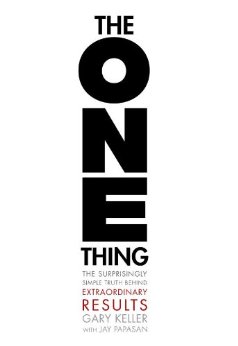 I am reading a book, The One Thing. Tai recommended it, but I had been resisting.
I am reading a book, The One Thing. Tai recommended it, but I had been resisting.
But like most of the books Tai recommends, it does have a kernel of gold… Maybe more than one kernel.
One of these is what he says about will power. Quite fascinating and very useful.
He says, that just like glycogen, brain food for thinking, will power uses energy, food, and can be depleted.
I don’t have to rely on will power, because about a year ago I started to reorganize my life to habitually do the things that serve me, and remove the opportunities for doing things that don’t serve me.
It did take will power to establish the habits, but I did it one at a time, and one at a time it was easier to see that the new habits served me.
You could say that you live habitually. If your habits serve some purpose then you have a life that is moving towards the good life.
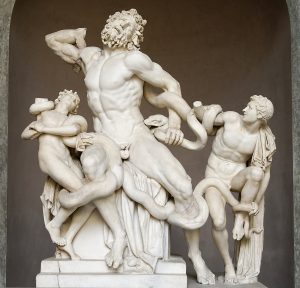 If your habits aren’t designed, specifically and consciously to move you towards the good life, your life is not moving towards the good life.
If your habits aren’t designed, specifically and consciously to move you towards the good life, your life is not moving towards the good life.
Time is like money: you invest it. And when it’s gone it’s gone. Non renewable.
I have been making choices, broad strokes choices.
I have decided that not everything that ‘needs to get done’ needs to get done.
There are important things and unimportant things.
I decide based on temporality. Looking on a timeline…
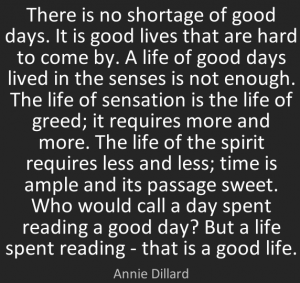 If the action is something that repeating it regularly, making it a habit, will be something I look back after five years and acknowledge it as the source of the good life, then I make it the core of my life.
If the action is something that repeating it regularly, making it a habit, will be something I look back after five years and acknowledge it as the source of the good life, then I make it the core of my life.
Habitually.
For me, it’s writing articles, coaching, reading, eating right, my exercise classes, and doing one or two brain enhancer activities each day. Also resting consciously when I am tired. 10 minutes.
It’s also having a schedule of going to bed early and getting up early. Having my phone off. Calling my brother once a month. Calling my University friend once every 2-3 months. Watching movies that inspire me, even if they are corny for others. Like “Working Girl”, a 1988 movie about a woman with grit and diligence, a movie I watched yesterday.
For me every day is the same, weekdays, weekends, holidays.
Michael Phelps swam seven days a week. He said that the thought behind that was: I will have 52 days advantage over every other swimmer. And he won more Olympic medals than anyone else in history. Because of this habit, and maybe other habits as well.
Habits spare your will power for new things. Things that don’t come easy. Yet.
And habits, well chosen, recharge your will power batteries.
For example, I take a minimum of seven mini vacations a day. When I grind my hemp seeds, make my tea, at a leisurely pace, like someone who doesn’t have a care in the world. My 10-minute rests.
I used to watch people drive like a maniac to get home and put up their feet.
I don’t ever have to do anything fast. Because I am never in a hurry. I never feel that I don’t have a life. I don’t have to take a break from anything.
It is both an attitude, the HOW of my life, and the WHAT of my life.
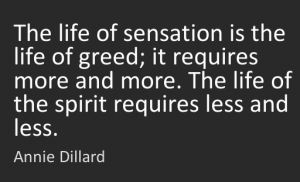 My life is a lot like music. A dance. It has rhythm, it has tempo, it has beauty in it. Not events… No cravings. No peak experiences.
My life is a lot like music. A dance. It has rhythm, it has tempo, it has beauty in it. Not events… No cravings. No peak experiences.
I had a ‘What gives you juice? What is your juice?’ Session on Monday, and as I was mentally preparing for it, I really saw that. How I live my life, and what made it so enjoyable is the “Juice” I invented some 15 years ago.
Bringing the divine to everything.
Obviously how I use the word divine is different from how other people use it… I really mean by divine that music, that rhythm, that reverence, that loving attention I give things. Everything.
The purpose of the Juice Exercise is to find the one thing that when brought to everything, integrates your life into one whole, instead of the life that most people have, fragmented.
When your life is fragmented, you are fragmented. And you need breaks. And you crave balance…
But most people, it seems, are committed to a fragmented life.
I can tell. Those are the people who oftentimes disappear and then come back. Or people who cannot bear the thought of doing any work on their days off. On holidays. Those people who have a difficult time returning to their rhythm after a holiday.
I have this vision that life can be seamless… like fabrics can be seamless.
The seams are what separate the different roles you play, the different people you are with, the different areas of life.
What makes life seamless is the how and the who. The beingness
My beingness used to be very chunky, forceful, rigid. A place where Virgo meets ‘Forget Thyself’.
It’s taken me decades to BUILD this new beingness, flowing like water, living like music. This new person feels more like me, more like home than any of the chunkiness I thought was me.
It has been a great journey, and has required quite some will power to remove the jerkiness: impulsivity, outbursts, firing queen, flaring up, campaigning from my life.
I still need to be managed. But managing ways of being are much easier than establishing them.
One of the bad results people have is from being inconsistent.
Inconsistent simply means: it is not a habit. It’s a campaign.
You go with the thought, or idea you have, and it takes you to wherever it takes you, and then it runs out of steam.
You fizzle out. And your life becomes a series of ‘I fizzled out’ incidents… and you have never amounted to anything. Or to much.
Nowadays when I buy a new marketing tool, my criteria is:
Can I make back what it cost me every month? Can I make it a monthly habit?
If I can’t see it, I don’t buy it.
Often, after buying I find out that it takes too much work, that the tool wants to take over my life. I see that I am better off losing the money that I paid for the tool, than spinning my wheels and then fizzle out.
I have a graveyard of tools I didn’t go for. I am better off for not going for it.
Some things you can’t see until you buy them. Until you look closely. Until you try to learn to use them.
I have even seen this with exercise machines… Not worth it.
Some things “demand” that you build your life around them. I already have a “centerpoint” to my life, so those demanding tools have to go.
My centerpoint, my one thing, is writing articles. The kind of articles I write.
I do that first thing in the morning.
But everything else I do supports that. The tea ritual. The rest, the reading, the coaching, the getting up early, the not ringing phone, everything in my life.
PS: I put this in the PS, because i don’t know how to ‘integrate’ it into what the article is saying, even though it is integral part of this life science.
Some 19 years ago I did a weekend course, the Millionaire Mind Intensive with T. Harv Eker, in New York.
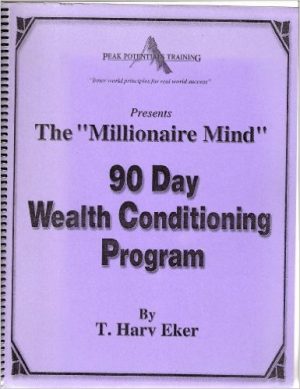 The course came with a set of habit-forming exercises, in a booklet, the 90 day Wealth Conditioning Program.
The course came with a set of habit-forming exercises, in a booklet, the 90 day Wealth Conditioning Program.
I did everything in it, every day. It took me maybe 20 minutes a day? Not more.
In 20 days I increased my net-worth by 13 thousand dollars.
When I talked to other people, I could not find one single person who did the 20-minute a day habit-forming exercises.
And that is the state of humanity nowadays: people do courses, do campaigns, events, but don’t invest in habit-forming.
Habits are the things that form your life.
I can observe you and know what your life is. I don’t even have to see you because I can feel you.
And most people’s lives I observe is not a life. It is disconnected campaigns, disconnected incidents, actions with no value produced.
Why? Because your habits are unproductive. From the point of view of a life that works. A life that is a joy to live.
As the title says: How we spend our days is of course how we spend our lives. And it is not just the big things… The how refers to everything. How you handle distractions, someone not agreeing with you, interruptions, tiredness, your phone chiming, your emails, your diet, your lunch break, pain, your everything.
The book talks about all those minutes, all those habits. And that is, probably, the most brilliant thing about it. In spite of the title…
In my experience, I had one thing that turned my life into a life worth living… and it did it over time.
You may not be able to do what I did the way I did it… but the tools you have are better than the tools I have had at the time. Less airy fairy. One organizing tool has been doing the 67 steps. Preferably daily. As a habit. A habit that takes you out of the same old same old… and puts it on track to be light on your feet, look around, and smell the roses.
Those 28 months spent doing the 67 steps daily have been the most instrumental in turning my life into a work of art.
There is no shortage of good days. It is good lives that are hard to come by. A life of good days lived in the senses is not enough.
The life of sensation is the life of greed; it requires more and more. The life of the spirit requires less and less;
time is ample and its passage sweet. Who would call a day spent reading a good day? But a life spent reading — that is a good life.
A day that closely resembles every other day of the past ten or twenty years does not suggest itself as a good one. But who would not call Pasteur’s life a good one, or Thomas Mann’s?
Read the original article: How we spend our days is of course how we spend our lives…